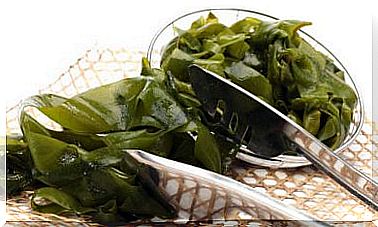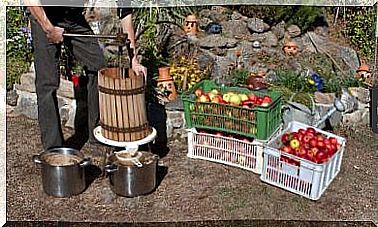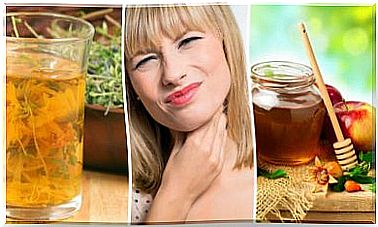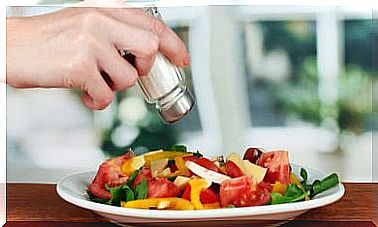The 4 Most Diuretic Infusions
Diuretic infusions favor the elimination of retained fluids in the body, and can be prepared with natural plants.

When we cannot expel the residual fluids from the organism, we can resort to the more diuretic infusions. Drinking them will help us to eliminate the retained liquid and it will relieve us.
Food, infusions or diuretic substances are those that make our excretory system improve its ability to eliminate urine.
Therefore, these infusions help the body to get rid of toxins, considerably reduce fluid retention and prevent swelling in the abdomen area.
The 4 most diuretic infusions
Of all the diuretic plants, the ones that have the greatest effect are the following:
1. Dandelion
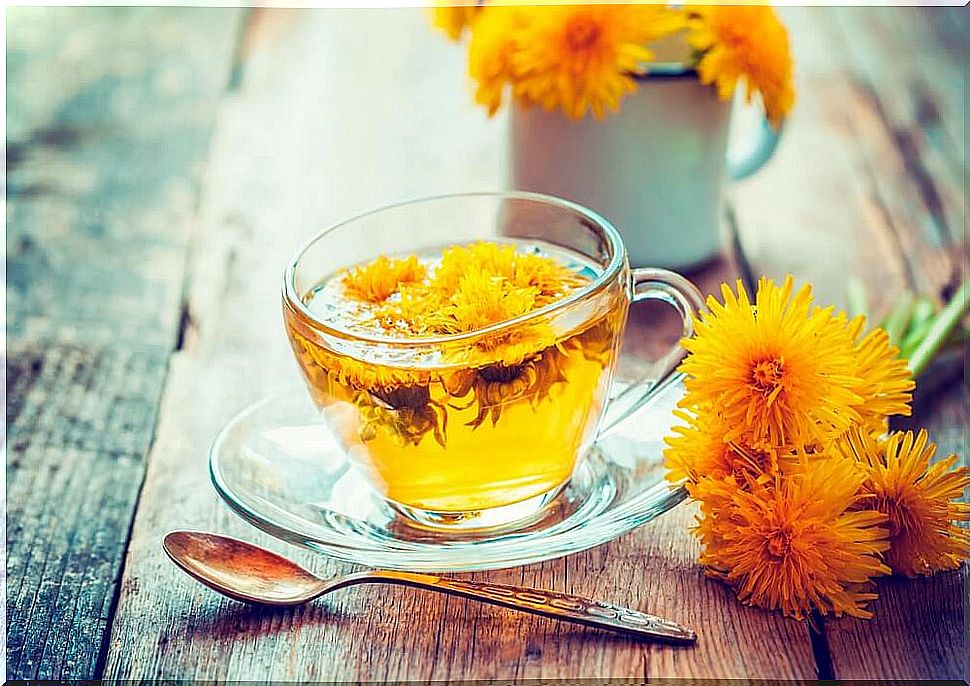
This infusion is used very often to counteract fluid retention. It is excellent for eliminating toxins and purifying the body.
In addition, it has a large amount of iron, folate and calcium. It also helps regulate blood sugar levels. There are two ways to prepare this plant to take advantage of its benefits:
- Infusion. You will need a tablespoon (15 g) of dandelion and a cup of water (150 ml).
- Boil the water, and when it reaches the boiling point, add the dandelion.
- Leave it on the heat for 3 minutes, turn it off, cover it and let it rest for 5 minutes.
- You can take this infusion three times a day, better before each meal.
- Leonida soup. To prepare it you must have dandelion leaves, two sprigs of chives, a clove of garlic, three medium carrots, a leek, four cups of vegetable broth (600 ml) and salt.
- Chop the chives, the leek, the carrots and the garlic clove.
- Bring them to a boil in a pot until tender.
- Add the dandelion leaves cut into small pieces to the mixture.
- Cook for about 5 minutes and cover the mixture with the vegetable broth.
- Let it cook for another 5 minutes, cover and let it rest.
2. Horsetail
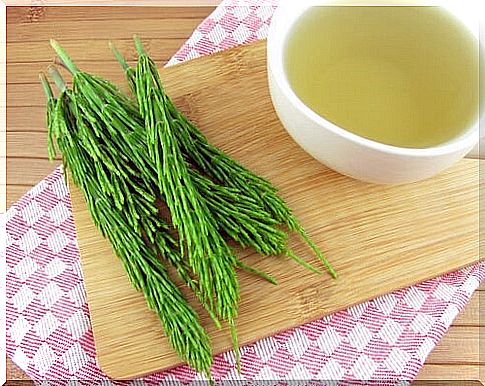
Another of the most diuretic infusions is horsetail. It helps to stimulate the kidneys and improve the health of those who have problems with uric acid, rheumatism or arthritis.
Horsetail increases urine levels and this makes the body purify itself and prevent the accumulation of toxins in the blood.
This plant can be found in teas and tablets. They both have the same effects.
To prepare the infusion you need approximately a liter of water and a couple of tablespoons (30 g) of horsetail.
- Mix the ingredients and heat them until the water boils.
- Wait about 3 or 4 minutes and turn off.
- Let stand 15 minutes and drink it.
3. Arenaria
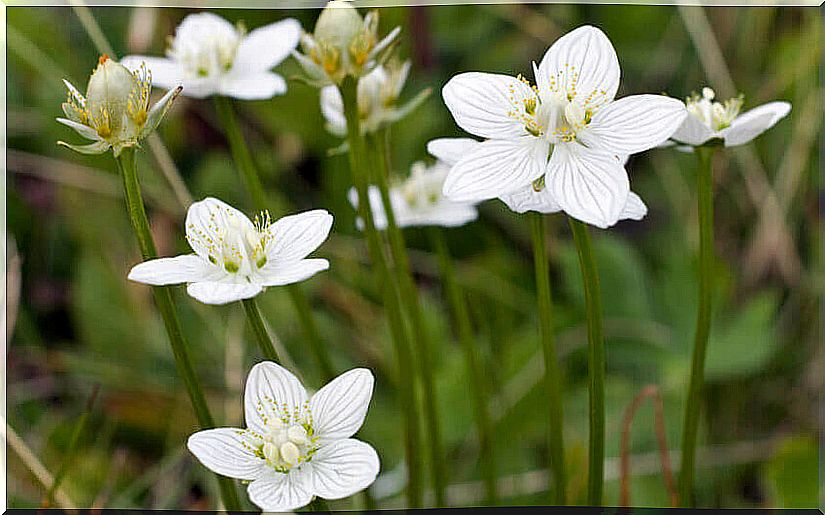
The arenaria is a diuretic plant, easy to recognize because it forms beautiful clusters with white and sometimes pink flowers. This shrub only blooms 2 times a year. Among its components are:
- Resins
- Flavonoids.
- Triterpenic saponins.
These components act especially on the gallbladder. Its action helps us eliminate a large amount of fat, toxins and waste.
To prepare the infusion you will need 40 g of dry arenaria and 1 liter of water.
- Pour the arenaria into the water and bring it to a boil.
- Let it boil for 5 minutes and turn off the heat.
- Let it sit for 10 minutes and drink it.
- Drink plenty of water.
4. Artichoke leaves
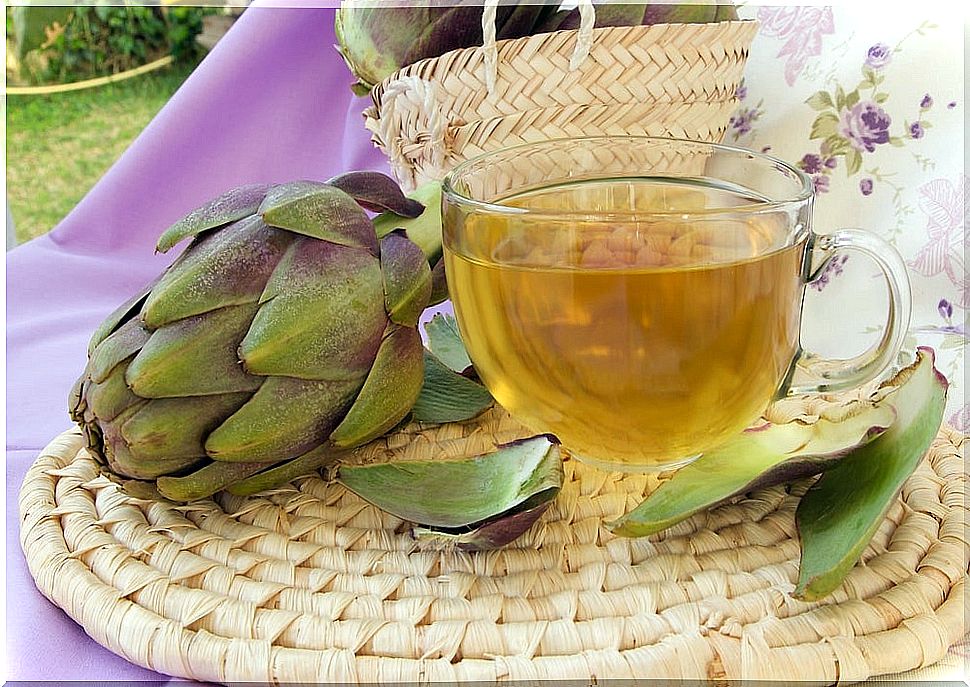
The artichoke is a vegetable that contains inulin and cynarin, especially in its leaves. These are responsible for facilitating digestion and excretion. In addition, they favor the elimination of liquids and, therefore, also of toxins.
The artichoke helps protect the liver. This is why it is often prescribed for people with hepatitis; it also acts as a cholagogue by increasing and stimulating the expulsion of bile.
- Put some artichoke leaves in boiling water.
- Wait 5 minutes and remove it from the heat.
- Let it rest for 10 minutes and strain it.
They can be taken up to three cups a day, preferably before meals. It is advisable to drink the infusion within a maximum period of 24 hours after the leaves are cooked, because they can cause intestinal problems.
